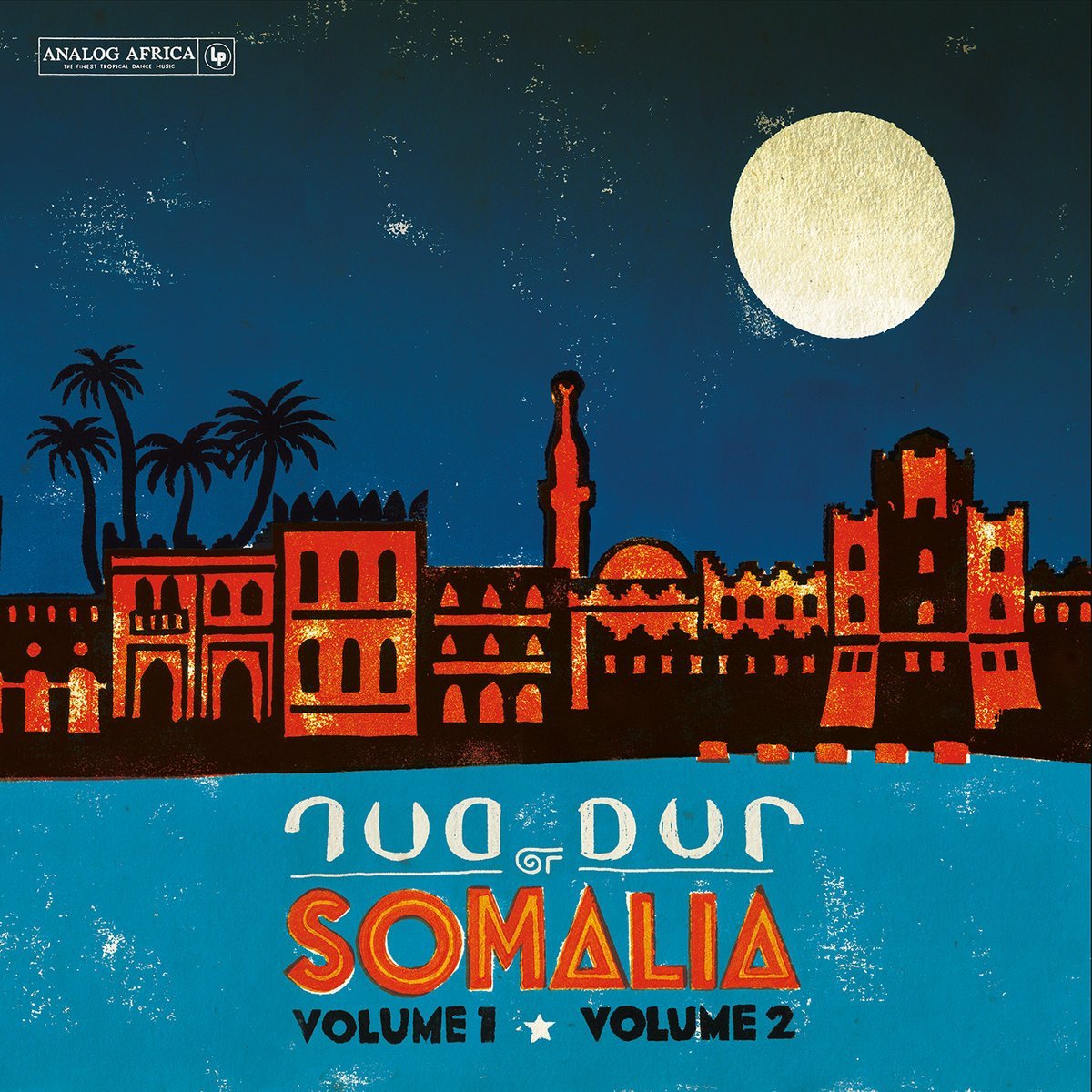During the 1980s, Somalia was in turmoil. Following the collapse of the Soviet Union, a disillusioned population, and a tiring dictatorship, the 1980s became the beginning of the end for President Said Barres’ regime, which had been in place since 1969. Despite all of this, the Mogadishu disco scene was thriving.
This was no more evident than in Dur-Dur Band, a supergroup of Somali musicians and singers from across the country, offering their own local touch to a band that was pushing boundaries in Somalia and beyond. They became successful within the cultural circles of Mogadishu and soon started to gain popularity abroad. However, with the decline of Somalia’s political situation – that led to a number of wars and ultimately the complete disruption of Somali life – the Dur-Dur Band disbanded and most of their music was thought to be lost.
By reissuing the first two volumes of Dur-Dur Band’s collection. Analog Africa are opening up a small part of this world to us. The reissue is of their first two albums, released in 1986 and 1987 respectively, as well as two previously unreleased tracks. Each volume takes us through an exploration of East African sounds mixed with a classic 80s new wave, electronic funk; sometimes encroaching on reggae, other times creating classic pop rhythms. Singers rotate to provide voices from different regions and traditions of Somalia, such as Daantho and Saar. This is so effectively infused that, despite being regular performers at a popular western hotel, the management was worried that they may leave tourists possessed with Somali spirits after they had danced the night away to the unorthodox disco of the Dur-Dur Band.
The sound is contemporary; each rhythm is slightly different to something you have heard in the past, but also very much of its time, as it glides through pop, reggae, disco and soul, leaving you imagining the exhilarating and sweaty sensation of partying in an 80s Mogadishu nightclub.
This album is not going to make you rethink the history of disco or disrupt the dominance of Swinging Addis in the Horn of Africa, but it certainly sounds good. And when you put it in the context of a crumbling Somalia, it makes it sound even better.


